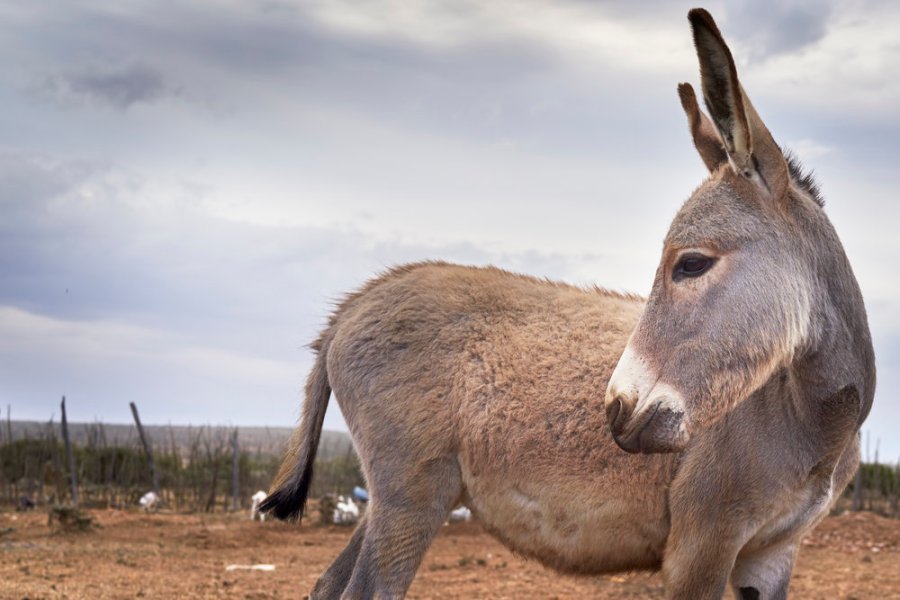Brooke Action for Working Horses and Donkeys is calling for a ban on the trade of donkey skins in Kenya and a crackdown on cross border smuggling of donkeys.
This follows a massive decrease in donkey numbers and increase in the slaughter of donkeys, which people in Kenya rely on for their livelihoods.
A recent report by The Kenya Agricultural and Livestock Research Organisation (KALRO) has predicted that donkeys in Kenya could be effectively wiped out by 2023.
Call for ban on products
Brooke also wants to see a ban on the products produced from donkey skin. Donkeys across the world are being slaughtered for their skins to meet an ever-increasing demand from China.
The skins are used to produce ‘ejiao’, a product used in Traditional Chinese Medicine. The treatment of donkeys in this process is often horrific and is having a huge impact on the livelihoods of people, as well as the population of donkeys.
In Kenya the slaughter is legal, with four licensed slaughter houses, the latest located near the border with Ethiopia. This promotes smuggling of donkeys into Kenya.
Up to 1000 donkeys can be legally slaughtered every day, but hundreds more are killed illegally. Theft is rife, with up to 60 a week being stolen and often slaughtered in the bush.
Spread of disease and infection
The smuggling of donkeys across African country borders carries a huge risk to welfare and health, as reported by the World Organisation for Animal Health (OIE) in May 2019.
In April 2019, Brooke witnessed an outbreak of equine flu in West Africa, which killed over 60,000 donkeys in Niger alone. The OIE reported that it was thought to be linked to illegal movement of animals.
Brooke’s chief executive Petra Ingram said: “The donkey skin trade is decimating the population of donkeys in some of the world’s most vulnerable communities and Kenya has become the epicentre of this issue within Africa. We’ve reached crisis point.”
Protecting livelihoods
Brooke wants to step up its efforts to protect the livelihoods of donkey owners like Kisima, a widowed mother of nine children, who woke up in the middle of the night to find that one of her two donkeys had been stolen.
Whilst she was eventually able to save up the money to buy another donkey, her daughter had to spend an entire term out of school.Kisima said: “My whole life I have relied on the donkey; it feeds me and my family, and educates my children too”
Don’t miss the latest issue of Your Horse Magazine, jam-packed with training and veterinary advice, horse-care tips and the latest equestrian products available on shop shelves, on sale now.










